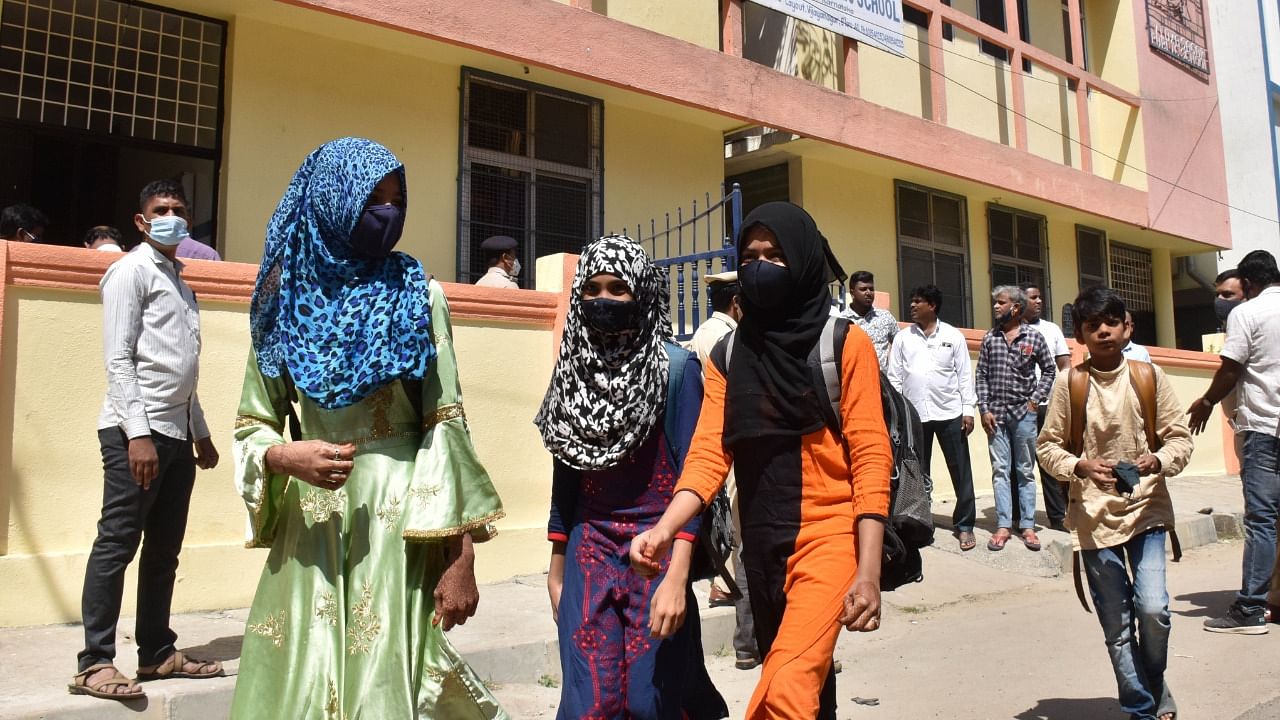
India on Tuesday accused the secretariat of the Organisation of Islamic Cooperation (OIC) of having a “communal mindset”, after the 57-nation-bloc condemned the recent ban on wearing hijabs in the educational institutions in Karnataka.
The general secretariat of the OIC issued a statement, expressing “deep concern” over “recent public calls for genocide of Muslims by the ‘Hindutva’ proponents” in Haridwar in of Uttarakhand and reported incidents of harassment of Muslim women on social media sites as well as banning of Muslim girl students from wearing hijab in Karnataka.
New Delhi strongly reacted to the OIC’s statement, dismissing it as “motivated and misleading”.
Also Read — Will crack down on outfits disturbing peace, Karnataka home minister says on hijab row
“Issues in India are considered and resolved in accordance with our constitutional framework and mechanisms, as well as democratic ethos and polity,” Arindam Bagchi, the spokesperson of the Ministry of External Affairs, said in New Delhi. “The communal mindset of the OIC secretariat does not allow for a proper appreciation of these realities”.
New Delhi recently also dismissed a comment by Rashad Hussain, the US Ambassador-at-Large for International Religious Freedom. Hussain had argued in a tweet that the ban on Hijab in schools in Karnataka had violated religious freedom in India.
The OIC general secretariat stated that the continued attacks targeting Muslims and their places of worship, the recent trend of anti-Muslim legislations in different states and rising incidents of violence against Muslims on flimsy pretexts by the ‘Hindutva’ groups with impunity were indicative of the growing trend of Islamophobia in India. It called upon the international community, especially the United Nations mechanisms and Special Procedures of the Human Rights Council, to take necessary measures in this regard.
It also urged India to ensure the safety, security and well-being of the Muslim community while protecting the way of life of its members and to bring the instigators and perpetrators of acts of violence and hate crimes against them to justice.
The OIC’s statement prompted the Government of India to reiterate that the 57-nation-bloc continued to be hijacked by vested interests to further their nefarious propaganda against India. “As a result, it has only harmed its own reputation,” said the MEA spokesperson.
New Delhi has been accusing the OIC of allowing itself to be used by Pakistan to malign India.
India, unlike Pakistan, is not a member of the OIC, which calls itself the “collective voice” of 1.8 billion Muslims of the world. But, Sushma Swaraj, the then External Affairs Minister, had attended the 46th meeting of the OIC Council of Foreign Ministers in Abu Dhabi in March 2019 as a guest of honour on an invitation by the host of the conclave and her United Arab Emirates counterpart Sheikh Abdullah bin Zayed Al Nayhan.
The invitation had been seen as a major diplomatic success for New Delhi as Pakistan had always used the OIC as a forum to slam India on the issue of Kashmir, particularly on the reported violations of human rights by security forces in Kashmir.
The UAE had paid no heed to the protest from Pakistan and had arranged for the External Affairs of India to address the conclave. Shah Mahmood Qureshi, Foreign Minister of Pakistan, had boycotted the OIC meet to protest the invitation to his counterpart in New Delhi.
But just a day after Swaraj’s address to the OIC Foreign Ministers, the bloc had again issued a statement, toeing Pakistan’s line and criticizing India on the issue of J&K.
Watch the latest DH Videos here:
